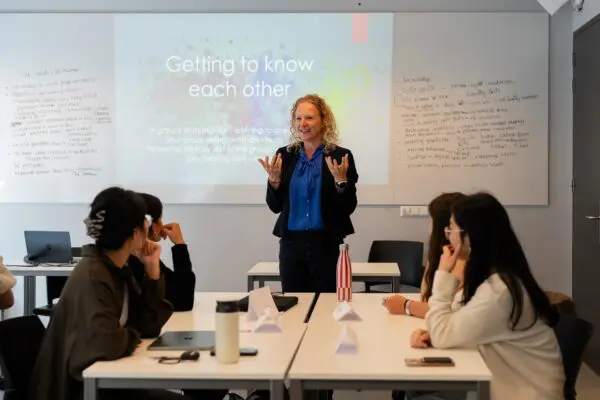
Amsterdam, Netherlands
New Media and the Digitalisation of Everyday Life
When:
19 July - 06 August 2026
Credits:
6 EC
Read more
Social Sciences
When:
18 September - 24 September 2022
School:
Institution:
Ca' Foscari University of Venice
City:
Country:
Language:
English
Credits:
0 EC

The Department of Asian and North African Studies of Ca’ Foscari University of Venice and the Marco Polo Center for Global Europe-Asia Connections are pleased to offer a Summer School on Social Movements in Contemporary Southeast Asia.
This Summer School will focus on the specific and distinctive features of collective social actors in the region by illuminating the central roles played by the youth, women, LGBTQ+ activists and religious actors in shaping, resisting, and/or contesting processes of cultural and socio-political change.
The Summer School will be held in Venice, Italy, on September 18 to 24, 2022.
The School welcomes MA and PhD students (including student activists) who wish to develop a research paper exploring one of the following three themes with reference to contemporary Southeast Asia:
- social movements through the lens of age;
- social movements through the lens of gender;
- social movements through the lens of religion.
Selected students will have the opportunity to work with an appointed advisor on the development of their research paper, written and oral. At the end of the School, they will present their paper to an audience of scholars of Southeast Asia.
* Should travel restrictions and other uncertainties related to the ongoing Covid-19 pandemic make it impossible for the event to be held onsite, the Organizing Committee will consider alternative plans, including hybrid modes of attendance.
Prof. Giuseppe Bolotta, Prof. Edoardo Siani, Prof. Richard Quang-Anh Tran
All MA students and PhD students interested in researching about social movements are eligible to apply.
This 7-day summer school aims to provide young and emerging scholars with methodological, theoretical, and analytical tools for the study of social movements in contemporary Southeast Asia.
Since the colonial period, resistance in the region has often been expressed via a broad range of social movements – a diverse array of collective actions, organizational strategies, and social networks that have catalyzed profound transformations in identity, lifestyle, culture, economy, and politics. Notable examples include the 1970s student movements in Thailand, the 2008 Saffron Revolution in Myanmar, and the 1986 People Power Revolution in the Philippines.
This Summer School will engage students in addressing the complex transformations brought about by social movements in Southeast Asia by considering the following three interrelated axes of enquiry: religion, gender and age.
As in other world contexts, young people in Southeast Asia have often been at the vanguard of political change. Their mobilization in the region has destabilized longstanding social hierarchies. Many of these movements seek to question prevailing gender norms and advance new ideas of kinship and community. In doing so they often co-opt, contest and reframe those religious ideals that sustain existing power arrangements.
Whilst a growing body of literature has dealt with social movements in areas ranging from Western Europe and North America to Latin America and the Middle East, Southeast Asia remains understudied. Yet, recent “gay pride” parades in Vietnam, youth-led “digital protests” in Thailand and Myanmar, Buddhist environmental actions in Cambodia, “indigenous rights millenarianism” in highland Southeast Asia, and Muslim NGO activism throughout Indonesia, to name a few, have captured international attention.
The Summer School will focus on the specific and distinctive features of collective social actors in this region by illuminating the central roles played by the youth, women, LGBTQ+ activists and religious actors in shaping, resisting, and/or contesting processes of cultural and socio-political change.
In addition to focused lectures and class discussions on social movements in Southeast Asia, the School will provide graduate students from around the world with opportunities to develop academic writing and presentation skills through collaborative work with senior researchers and leading experts in the field.
Based on their research interests/proposal, students will be assigned to one of the following working groups/thematic panels:
- social movements through the lens of age;
- social movements through the lens of gender;
- social movements through the lens of religion.
Students in each panel will work with an appointed advisor on the development of their research paper. The School will conclude with a Graduate Conference that is open to the public. This final event will provide students with a platform to present their work in a scientific conference setting to an audience of scholars of Southeast Asia.
When:
18 September - 24 September 2022
School:
Institution:
Ca' Foscari University of Venice
Language:
English
Credits:
0 EC

Amsterdam, Netherlands
When:
19 July - 06 August 2026
Credits:
6 EC
Read more

Brighton, United Kingdom
When:
29 June - 17 July 2026
Credits:
15 EC
Read more

Antwerp, Belgium
When:
02 February - 06 February 2026
Credits:
3 EC
Read more